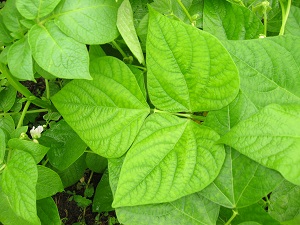
This module is the bridge between Plant growth and nutrition and the module Investigating healthy soils. In this module you will learn more about how soils work and how they naturally supply nutrients to plants. Examples can range from vegetables growing in a garden soil to pasture or crops on a farm. To do this you will look at components of soils and some of the physical properties of soils. A central part of the module is about how soils work, that is, how they supply nutrients to plants. You will look at soil processes, for example how organic matter breaks down to release nutrients.
In this module you will start to take an organised approach to investigating and diagnosis plant growth problems. This will include making observations and linking these to causes. By looking at examples and patterns of plant growth, and information like nutrient deficiencies, you will start to see how soil physical factors, seasonal factors and fertiliser or manure inputs work to supply the nutrients that plants need. Last you will select a plant growth problem to study. The first step is to map out the factors involved, relate the nutrient supply to soil factors and then work out a production plan for your plant or crop of interest that includes the type of soil that will provide or facilitate supply of the nutrients needed.
Cost $220. Allow 20 hrs study time. Aim to complete the module within 6 weeks. Tutor Dr Tim Apps
Topics:
1. Diagnosis of plant growth problems. The main factors to look for in investigating growth and nutritional problems.
2. Making observations and interpreting these in terms of the plant’s environment.
3. How to use a systematic approach to investigate, diagnose and develop sustainable plant production systems. The process includes interpreting observations and choosing tests. Making and testing predictions based on a nutrition plan.
4. Sources of plant nutrients. Types of nutrients from soil minerals, range of organic fertilisers, artificial fertilisers and nitrogen from N fixation. Also examines role of green manures.
5. Time based aspects of how plants take up nutrients including seasonal factors and life cycle stages. Rate of uptake. How soil supply of nutrients matches plant uptake patterns.
6. Role of manures and organic matter in soils. Introduction to composting. Other benefits in soil, application of organic amendments to soil.
7. Key soil processes including breakdown of organic matter to supply nutrients.
8. Constructing a nutrient plan that builds on knowledge of fertilisers, nutrient sources, soil processes and seasonal and growth cycle factors.
Outcomes: According to your interests or actual farming or gardening situation: Choose a particular crop, garden or ornamental plant and complete a summary of its basic requirements for cultivation paying particular attention to nutrients required. Describe its growth habit, how it is normally cultivated and natural growth cycles. Make a nutrient plan that integrates supply of nutrients from difference sources. If possible take into account other factors that you have touched on so far in this module. The plan should show how to provide the majority of nutrients within a good growing environment on an ongoing basis.